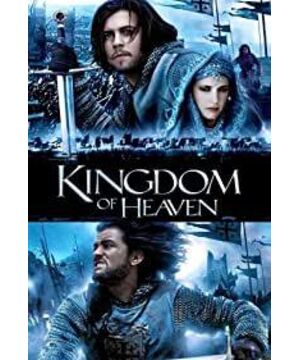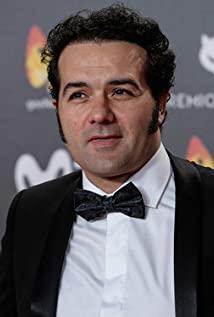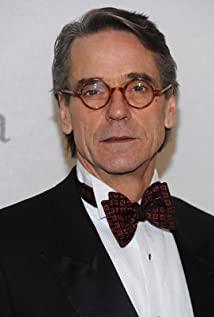If you look for wars in human history aimed at ideology, the crusades may become the first chapter of this history. Catholic and Muslim's centuries-long battle to the death is staged in the most naked, violent, and lustful ways in the land of the Levant. The participants may be for practical interests, or they may be for fanatical religions, or they may be purely for the protection of their homes. When the microscopic superposition becomes the macroscopic ideology conflict, this scene is quite like another attack from the East to the West hundreds of years later, of course, it will not be described here.
However, the background of this conflict for this film is a contradictory adventure, not Akka, nor Rhode Island, nor any other city in the land of Canaan, but the core of contradictions in this land. :Jerusalem.
In the Middle Ages, Jerusalem was undoubtedly the juncture between heaven and earth: the superposition of the sacred and the profane. The interests of the competition for this land are not important, and its spiritual significance is far greater than the economic interests, but this spirit benefits from the projection of the real world. Jerusalem is a priority, both politically and spiritually. The conflict over this land is a conflict in the kingdom of heaven and a conflict in the flesh.
The Templars, Saladin, the knights of the kingdom, maintain a delicate peace in this land. The Templars rely on the ritual massacre to maintain their crumbling fanaticism and self-esteem. Saladin weighs With the Arab tribes' desire for Jerusalem, the kingdom's knights carefully brokered between the parties, hoping to preserve both the peace and the kingdom. There is no doubt that in actual political operation, these three factions are all pragmatic, and they have their own reasonable behavior to maintain their rule. Even the most reliant Templars on fanaticism had to rely on subtle ritual art and normalized massacre to maintain fanaticism. Scott satirized the country under the mobilization system with the most subtle metaphor. policy application.
Scott is not taking sides, the kingdom knights are weak, they only want a decent peace, the Templars are crazy. And Saladin became the opposite of Jerusalem: he was sensible, brave, wise, tolerant. The Arabs have become the opposite of the Europeans in Jerusalem. At this level, it is not a reflection on Orientalism.
Only at the end does Scott stop his critical narrative and begin to explore what he most wants to explore: the conflict of ideology as the kingdom of heaven and the conflict of man as the world, and the conflict between the kingdom of heaven and the world. The conflict of the former is nothing but a hedge between madness and madness, while the latter is rooted in the tragedy of the times itself. A heavenly hedge will kill millions, so how will we choose between heaven and earth?
Scott didn't answer, or rather he didn't answer directly. None of the characters in the Kingdom of Heaven answered this question with their actions. Only the protagonist's indifferent sentence "If Jerusalem is the kingdom of heaven, then let the kingdom of heaven decide its ending."
Saladin didn't do it, because what he did to neutralize the kingdom of heaven and the world was exactly for the kingdom of heaven. If there was no threat, why wouldn't he slaughter the old and the young in Jerusalem? Baldwin didn't do it because he chose the mortal world between heaven and the mortal world, and he could give up religious conflict for peace. The inherent conflict between the kingdom of heaven and the purpose of the world will subvert our reality and purpose, only to use fanaticism to hold up the kingdom of heaven, or to use economics to hold up the mortal world, no one in the whole film makes a neutralization between the two, but He answered again: relying on what Ibelin said above, let the kingdom of heaven decide the kingdom of heaven, and let the world decide the mortal world.
This kind of secular thinking (which is precisely the modern mainstream thinking) does not cover up the crisis itself. No matter how modern the Middle East is, it will fight for the kingdom of heaven. The decades-long conflict between Israel and Palestine is just another pathological condition of the Crusades. continue.
Jerusalem will also detonate many wars in the future, even the secular countries: France, Britain, Tsarist Russia, Ottoman, Egypt, Syria, Israel, Palestine, are just repeating the same mistakes, giving up the preciousness of the world for the sake of the kingdom of heaven.
Scott is unquestionably neutral: what God is in charge of God, and what is in the world is what is in the world. However, this neutralization attitude did not stop the war, but was constantly subverted by conservative forces around the world. When the kingdom of heaven is merged into the mortal world, then we may only usher in killing.
View more about Kingdom of Heaven reviews











